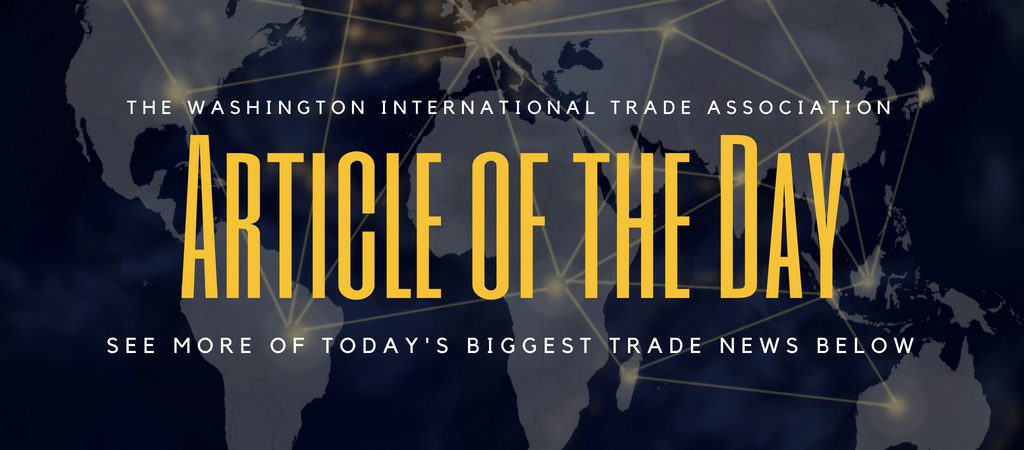Lighthizer on Monday downplayed concerns that the United Kingdom’s insistence on protecting its National Health Service and its food safety and animal welfare rules would derail trade talks between the two countries.
“I don’t think either of those are going to be what sinks us,” Lighthizer said in a speech at the Oxford Union, according to a Bloomberg report.
President Donald Trump has already denied the United States has any interest in the NHS as part of the negotiations. “If you handed it to us on a silver platter, we’d want nothing to do with it,” Trump said in December while in London for a NATO summit.
But in a sign of the U.K.’s great sensitivity on the issue, the negotiating objectives it released on Monday emphasizes several times that “the NHS will not be on the table” and insists “the price the NHS pays for drugs will not be on the table” and neither will “the services the NHS provides.”
USTR’s negotiating objectives, released last year, do not specifically mention the NHS or health services. In addition, a section on state-owned enterprises includes the goal of allowing the United States and the U.K. to “retain the ability to support SOEs engaged in providing domestic public services.”
PhRMA’s wish list: But other U.S. objectives seem to give the U.K. reason to be defensive on the NHS, including this one: “Ensure that SOEs act in accordance with commercial considerations with respect to the purchase and sale of goods and services.”
In addition, the Pharmaceutical Research and Manufacturers of America, in comments filed last year with USTR, complained about a number of “long-standing market barriers [in the U.K.,] such as rigid health technology assessments (HTA), government price controls, insufficient health care budgets, and increasingly punitive and proactive national procurement initiatives.”
Lighthizer said the recent U.S. trade deal with Canada should allay U.K. concerns about the NHS and drug pricing. “We don’t get into drug pricing in Canada,” he said. “We should have access to normal things that are sold anywhere in the economy in this country. And we would expect that we should have access in the health care area, to the extent there’s private-sector competition in areas, we should have access to that.”
Will Trump get any meat in the deal? The U.K. is also adamant the trade deal must “uphold the U.K.’s high levels of public, animal, and plant health, including food safety.”
That stance suggests U.S. beef, pork and poultry producers could gain little or no additional market access because of U.K. concern over U.S. production practices, including the use of certain veterinary drugs and antimicrobial rinses.
Major U.S. farm groups, including the American Farm Bureau Federation, the National Cattlemen’s Beef Association, the National Pork Producers Council and the USA Poultry and Egg Export Council, all want Trump to get an agreement that lifts those restrictions.
“That’s kind of a false problem,” Lighthizer said in response to U.K. concerns about importing chicken rinsed with a chlorinated wash to kill bacteria. “Science-based standards, and then consumer preference — that’s what’s going to sort out this problem, and the United States and the U.K. are not going to go separate ways based on chicken.”
Climate change another red flag: The U.K.’s objectives also calls for provisions to help fight climate change, an area that the Trump administration has resisted, including in trade agreements. But Bill Reinsch, a trade policy expert at the Center for Strategic and International Studies, noted it was near the end of the U.K.’s list, suggesting it may not be a high priority.
There are also potential clashes on financial services regulation, government procurement, data localization and other issues not yet apparent.
“If you take [all the U.K. objectives] seriously, it means a long, difficult negotiation, but at some point they will have to prioritize and lose some of this stuff,” Reinsch said. The U.K. is less likely to bend on the NHS, given its strong rhetoric, but may have more flexibility on the meat trade issues, since it also has some agricultural market access goals, he added.
To see the full article, click here.

